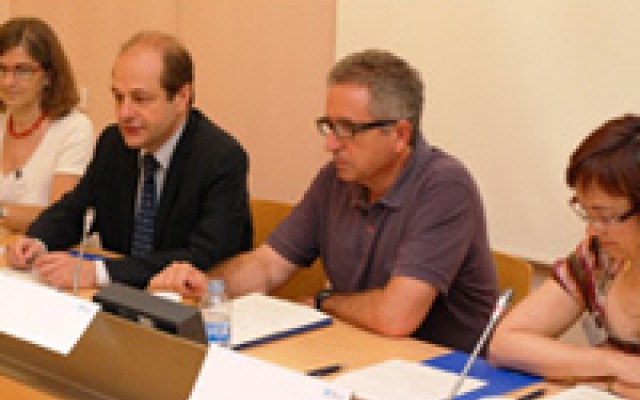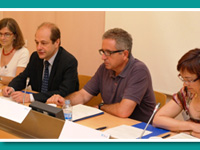community
III CREMed Workshop on Economics of the Mediterranean

The Center for Research on the Economies of the Mediterranean (CREMed) organized the III Workshop on Economics of the Mediterranean on June 26-27, 2012 at the BSE's Ciutadella Campus.
CREMed is a joint undertaking of the BSE and the European Institute of the Mediterranean (IEMed). The objective of the initiative is to promote high quality economic research on development, with a special focus on the Mediterranean region.
Under the direction of workshop organizers Prof. Eva Ventura (UPF and BSE) and Prof. José García-Montalvo (UPF), the workshop brought together academics and researchers from North Africa, the Middle East, Europe and the United States. The workshop included four sessions covering the following topics:
- Macroeconomics, Finance and Growth
- Trade
- Environment
- Human Capital, Labor and Migration

The workshop's keynote speaker was Dr. Phillip Keefer, Lead Research Economist of the World Bank Development Research Group. He argued that Tunisia provides a clear example of how a weak organization of political parties makes a country vulnerable to spontaneous uprisings, whereas the triumph of the Muslim Brotherhood in Egypt was a foregone outcome since they were the only group in the country which was sufficiently organised at a political level, in addition to the military.
The Workshop opening was given by representatives of IEMed, BSE, and CREMed. Mr. Andreu Bassols, Director of IEMed, offered remarks on the academic challenge posed by the Arab Spring, not only with regard to political and social issues, but also concerning economic development — a challenge which, in practice, implies being able to influence the policies that the new governments of the region will need to implement in order to ensure inclusive economic growth in their respective countries.
"The Arab Spring represents an opportunity to bring Southern European countries closer to countries in transition in Northern Africa, while strengthening the links with them and increasing investments," Mr. Bassols said. "There is a need for an enhanced cooperation as this region, which had been traditionally considered as stable, has become one of the most dynamic in political terms at the beginning of this century."

